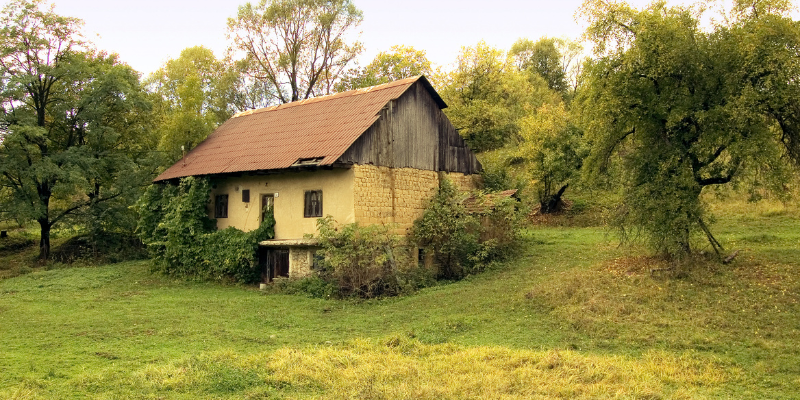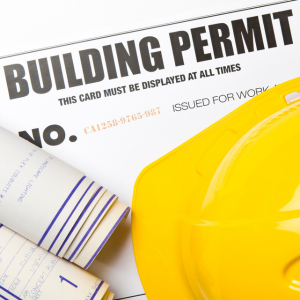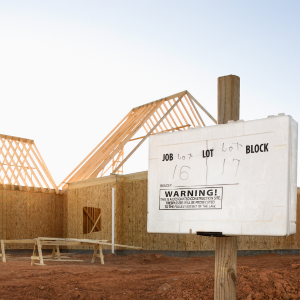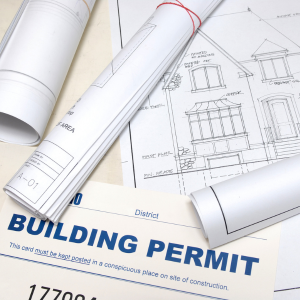
Selling a Chicago home with unpermitted renovations can be tricky. Illinois Real Estate Buyers helps homeowners navigate the risks and sell with confidence.
Understanding Unpermitted Work in Real Estate Transactions
It is essential to comprehend unpermitted work when negotiating the sale of a Chicago property, as it can have a substantial effect on real estate transactions. In the dynamic Chicago housing market, numerous householders elect to renovate their properties in order to increase their property value. However, neglecting to obtain the requisite permits can result in complications.
Buyer interest and property valuations are frequently affected by unpermitted renovations, which can lead to legal and financial consequences. Buyers are generally apprehensive about properties that contain unpermitted work because of the potential for safety hazards and future compliance issues.
In order to prevent legal liabilities, sellers are required to disclose any unpermitted improvements during the transaction process. Real estate professionals are essential in the identification of unpermitted work by conducting comprehensive inspections and reviewing municipal records.
By proactively addressing these issues, it is possible to ensure compliance with local regulations and facilitate smoother negotiations, thereby protecting both sellers and purchasers from unforeseen challenges in the dynamic Chicago real estate market.
Common Types of Unpermitted Work Found in Residential Properties
When selling a Chicago house, unpermitted improvements can be a major issue for both buyers and sellers. Unpermitted construction in residential homes includes basement remodels, where homeowners create extra living space or bedrooms without obtaining city permits.
Upgrades to kitchens and bathrooms, such as installing new plumbing fixtures or electrical wiring, can lead to code violations. Decks and patios built without a sufficient license might also cause complications during the sale because they may not meet safety regulations.
Converting attics into usable spaces without permission is another common example of unpermitted changes. Homeowners may install or upgrade HVAC systems without proper approval, leading to efficiency and safety concerns.
Unpermitted construction can disrupt real estate transactions by decreasing property prices and hindering inspections and valuations in Chicago’s active housing market.
How to Identify Unpermitted Work Before Listing Your Home
When preparing to sell a Chicago house, finding unpermitted work is critical to a successful transaction. Begin by thoroughly researching your home’s renovation history and comparing it to city documents to identify anomalies in permits.
Pay special attention to common places where unpermitted work may occur, such as basements, attics, or additions that have been altered without proper permission. Consulting with a certified home inspector can also be advantageous because they are trained to detect indicators of unauthorized alterations.
Look for telltale signs like mismatched materials or installations that depart from typical construction methods. It is advisable to contact the Chicago Department of Buildings for information on existing permits and any violations involving your property.
Identifying unpermitted renovations before advertising your house helps ensure compliance and minimize hassles during the sale process.
The Role of Home Inspectors in Identifying Non-compliant Construction

During the process of selling a Chicago property that has undergone unpermitted renovations, home inspectors are essential in identifying non-compliant construction. These experts are specially trained to conduct an exhaustive assessment of properties to identify any indications of unauthorized alterations that may violate local building codes.
In the real estate market of Chicago, where unpermitted renovations can have a substantial impact on the transaction process, home inspectors offer invaluable expertise. Structural integrity, electrical systems, plumbing, and other critical components are evaluated to guarantee adherence to municipal regulations.
By identifying discrepancies at an early stage, they assist sellers in resolving potential issues prior to listing the property and assist purchasers in making the most informed decisions. Furthermore, home inspectors frequently work in conjunction with contractors and city officials to assess the severity of noncompliance, generating comprehensive reports that delineate the necessary corrective actions.
Their thorough evaluations are crucial in minimizing the risks associated with the acquisition or sale of homes that have undergone unapproved modifications.
Legal Implications of Selling a Home with Unpermitted Construction
It is important for both buyers and sellers to know the legal consequences of selling a home in Chicago that has been renovated without permission. If you have an unpermitted building on your property, it can lead to complicated legal problems that could hurt the sale process and the value of the property.
In Chicago, it’s important to tell people about any changes or additions made without a license to prevent legal problems. Sellers must tell buyers about any problems they know about with unpermitted work. If they don’t, they could face legal action or fines.
People who want to buy a home with these kinds of problems should know that they may have to pay more to get the improvements up to code or get permits after the fact. Also, mortgage lenders might not want to finance properties with permitting problems that haven’t been fixed yet, which makes the deal more complicated.
To deal with these legal issues, everyone concerned needs to be able to talk to each other clearly, and they may need to talk to real estate lawyers who know the rules about unpermitted construction in Chicago.
Selling a home with unpermitted construction can lead to fines, delays, or legal issues. Buyers may demand repairs or price reductions, and failure to disclose these issues can result in lawsuits. To avoid these risks, sell your home for cash in Chicago and other cities with Illinois Real Estate Buyers. We buy properties “as-is” for a faster, more straightforward process.
Navigating Property Disclosures for Unpermitted Work

When selling a home in Chicago that has undergone unpermitted repairs, understanding property disclosures is critical to ensuring a successful transaction. Illinois law requires sellers to disclose any known substantial deficiencies, including unpermitted work.
Homeowners must study and complete the Illinois Residential Real Property Disclosure Report accurately, including any unpermitted changes or upgrades. This transparency fosters trust with potential buyers and can prevent legal complications in the future.
Sellers should speak with a real estate attorney who is knowledgeable about local ordinances in order to fully understand their disclosure duties. Working with a knowledgeable real estate professional can help handle buyer concerns about unpermitted construction, including obtaining retroactive permits and negotiating repairs.
By disclosing any unapproved changes, sellers can better manage expectations and smooth discussions, resulting in a successful sale of their Chicago house.
Impact of Unpermitted Additions on Property Value and Sale Price
In Chicago, unpermitted work can slash both a home’s value and its asking price. When would-be buyers learn that upgrades lack the required permits, they often see extra risk, lose enthusiasm, and offer less.
Unauthorized changes may also scare lenders away, leaving sellers without mortgage approval. Furthermore, appraisers tend to lower their estimates on properties with such modifications, which in turn drags down the overall market value.
Because Chicago real estate hinges on strict building codes, unpermitted work can expose sellers to fines and legal claims. As a result, many owners either secure the necessary permits before listing or trim the price to offset buyers’ worries and future costs.
Legal Solutions and Remedies for Addressing Unpermitted Work Pre-sale

It is imperative to investigate legal solutions and remedies to resolve such issues prior to listing a Chicago home that has undergone unpermitted renovations. Engaging a real estate attorney who is well-versed in the local building codes and regulations can be of great value.
They can assist in the process of rectifying unpermitted work by evaluating the feasibility of obtaining retroactive permits and facilitating communication with city officials. A home inspection may occasionally disclose the extent of unpermitted work, which may require corrective actions or modifications to adhere to Chicago’s building standards.
Potential buyers may be offered credits, or the sale price may be adjusted to account for any necessary remediation, which sellers should also take into consideration when negotiating terms. It is imperative to maintain transparency; by disclosing all known issues associated with unpermitted renovations, future legal disputes can be avoided, and the transaction process can be more seamless.
In addition, contractors who have experience in rectifying code violations can provide estimates for bringing the property up to code, which may assist in the decision-making process regarding negotiations or repairs during the sale.
Financing Challenges When Buying or Selling Houses with Permit Problems
When purchasing or selling a Chicago home that has undergone unpermitted modifications, financial issues might become a serious impediment. Lenders are frequently suspicious of homes with permit difficulties because they represent potential legal and safety risks that might lower the property’s value and marketability.
Unpermitted work may violate local building rules, making it difficult for buyers to obtain regular mortgage financing. Lenders often insist that all work be properly permitted and inspected prior to loan approval.
If the seller is unable to settle these issues, the sale may be delayed or completely derailed. For sellers, this involves addressing permit issues as soon as possible by acquiring retroactive permits or repairing any code violations that are required by the lender.
Buyers should also expect extra scrutiny throughout the appraisal process, as appraisers will likely include any unpermitted work when determining the home’s value. Clear communication between buyers, sellers, real estate brokers, and lenders is essential for successfully negotiating permit challenges and avoiding financing errors.
Strategies for Marketing Homes with Non-compliant Modifications
Marketing a Chicago property with unapproved updates demands a careful blend of honesty and vision that spotlights the house upside-down while calming fears about code gaps. First, transparent disclosure of any work done without permits builds trust, shields the seller from later legal headaches, and sets a straightforward tone from the start.
A seasoned real-estate professional who knows the city’s zoning and building rules can steer both parties through the paperwork and inspections that may follow. Spotlighting improvements such as expanded living areas or a sleek, modern kitchen draws buyers eager for move-in-ready upgrades and shows them where their money is going.
Sellers can further ease nerves by pursuing retroactive permits or offering credits that cover the final compliance costs, turning a potential red flag into a manageable expense. Finally, targeted ads that stress location perks, vibrant neighborhood amenities, and stunning professional photos of the bright, upgraded rooms can shift focus away from paperwork toward the lifestyle the home promises.
Marketing homes with non-compliant modifications in Aurora and nearby areas require transparency and clear communication. At Illinois Real Estate Buyers, we buy houses in Aurora and the surrounding areas, providing sellers with a straightforward and hassle-free process.
Negotiation Tips for Sellers Dealing with Unpermitted Work Issues
To get a good deal when selling a Chicago home with unpermitted additions, you need to be a skilled negotiator. Before selling something, the seller should get all the paperwork they can find that has to do with the illegal work. Being open and honest can help potential buyers trust the seller.
It’s important to point out any good things about the improvements that make the house more appealing or increase its value, even if they didn’t get permits. Getting a real estate professional who knows the local market and the rules and laws can help you make smart decisions about pricing and negotiating.
Being ready to make concessions, like paying for the permit or lowering the price, can calm buyers’ concerns and make talks go more smoothly. You should also get quotes for how much it will cost to bring the work up to code. This can help you negotiate with buyers.
Sellers can confidently address issues and stay in charge of the negotiation process by anticipating questions and complaints about work that isn’t allowed.
Can You Sell a House with Unpermitted Work in Illinois?
Selling a home with unpermitted renovations in Illinois, particularly in Chicago, can be a difficult process that requires cautious navigation. In Illinois, it is legal to sell a property with unpermitted modifications, but homeowners must disclose any unpermitted work to potential buyers.
Failure to divulge this information may result in legal issues. To ensure a seamless transaction, sellers should explore getting retroactive licenses or negotiating terms with buyers willing to accept responsibility for unpermitted work.
In Chicago’s competitive real estate market, complete openness is essential for building confidence and avoiding disagreements during the home-selling process. Working with an experienced real estate professional who is familiar with local restrictions can help sellers navigate their alternatives and comply with Illinois real estate laws.
Additionally, sellers may consider offering incentives or price adjustments to attract purchasers who are willing to deal with unpermitted modifications.
You can sell a house with unpermitted work in Illinois, but it’s risky if not disclosed. To avoid issues, legalize the work or sell “as-is” fully transparently. Contact Us at Illinois Real Estate Buyers for help navigating the process.
Can You Sue a Seller for Unpermitted Work?
People who want to buy a Chicago house with unpermitted renovations often ask if they may sue the seller for doing work without permission. Unpermitted work can be quite risky for both the law and your money when you buy or sell a home.
People who want to buy a home in Chicago should know that buying a home with unpermitted improvements could cause problems, such as code violations and extra fees for bringing the home up to current requirements. If the seller didn’t tell the buyer about these illegal improvements or lied about the state of the home during the transaction, the buyer may have a case for fraud or misrepresentation.
Buyers need to do a lot of research, such as getting an inspection and looking over local records to find any problems with permits. If you’re buying a house in Chicago and want to know your rights and alternatives when it comes to unpermitted renovations, it’s a good idea to talk to a real estate lawyer who knows Illinois law.
How to Disclose Unpermitted Work?
When selling a Chicago house with unpermitted modifications, it is essential to comprehend the effective disclosure of such work. Accurate disclosure is crucial for ensuring transparency and safeguarding the interests of both the seller and the buyer in a real estate transaction.
Commence by collecting all pertinent information regarding the unauthorized renovations, encompassing any documents or records of the finished job. In Illinois, sellers are legally required to complete a Residential Real Property Disclosure Report, in which they must truthfully respond to inquiries about any known difficulties with the property, including unauthorized modifications.
Explicitly enumerate any alterations that are devoid of requisite permits in this report to guarantee complete adherence to state regulations. Openly discussing this information with prospective buyers and their representatives helps avert future legal conflicts and cultivate trust during the sales process.
Engaging a real estate attorney well-versed in Chicago’s housing regulations can offer essential advice on effectively managing disclosures and minimizing liabilities linked to selling a property with unpermitted improvements.
Need to sell your home quickly and without the usual headaches? Illinois Real Estate Buyers makes it easy. We buy houses as-is, offer fair cash prices, and handle all the paperwork so you don’t have to. Call (773) 305-6373 for a no-pressure consultation and cash offer. Let us take the hassle out of selling.
| CHICAGO, IL | CHICAGO, ILLINOIS | MONEY | REALTOR | LAWYER | CHICAGOLAND |
| CHICAGO SUBURBS | CHICAGO MARKET | LOANS | MONEY LENDERS | REMODELING | INSURERS |
| FORECLOSURE | FORECLOSURE SALE | CASH | BLUEPRINTS | SUBURBS | |
| TAXES | TAX | LEGAL LIABILITY | INVESTORS | REAL ESTATE LAWYER | PROPERTY TAXES |
| PROPERTY TAX | LIENS | HOME RENOVATIONS | BUILDING INSPECTOR | BUDGET | ON THE MARKET |
Helpful Chicago Blog Articles
• Optimal And Challenging Months For Selling A House In Chicago, IL
• Selling A Chicago, IL, Home With Title Challenges
• Sale Of A Chicago, IL, Home With Unpermitted Renovations
• FHA Repair Requirements For Homes In Chicago, IL
• How Much Is Home Staging Cost in Chicago, IL
• The Best Season For Selling Your House In Chicago, IL
• Can a Seller Back Out Of A Real Estate Contract In Chicago, IL?
• Legal Solutions For Dealing With Bad Neighbors In Chicago, IL
• Tax Implications of Selling Home in Chicago, IL
• Can I Sell a House with a Quitclaim Deed in Chicago, IL
• How Long Does an Eviction Process Take in Chicago, IL?
• Selling a Home That Needs Repairs in Chicago, IL
• How To Sell An Investment Property in Chicago, IL

